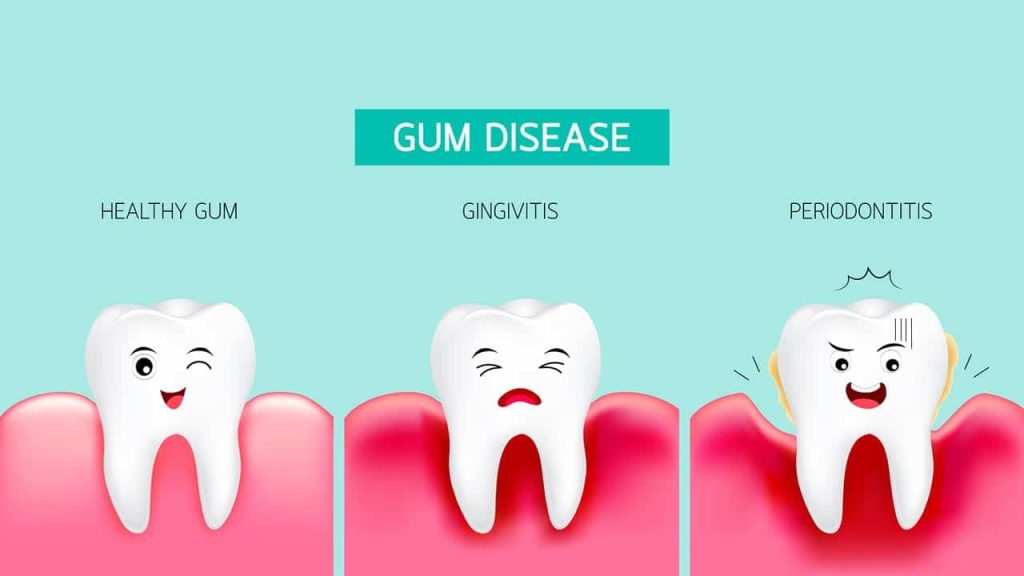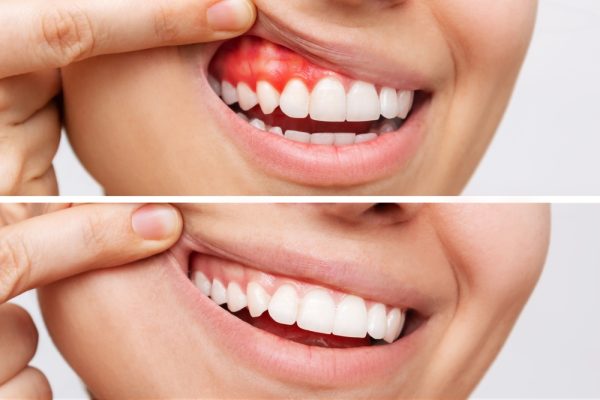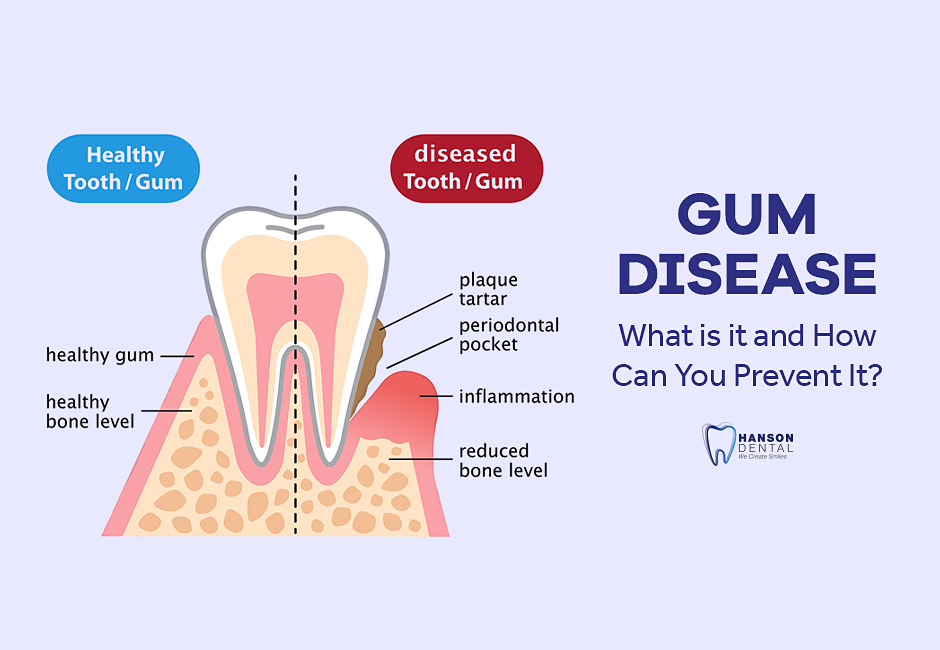Introduction
This article explores the impact of gum disease and answers the critical question: we have a question from a dedicated reader: can gum disease kill you? Gingivitis, which can progress into periodontitis, is primarily a chronic inflammatory process in the structures located around the teeth. Therefore, it is referred to as periodontal disease. Its extensiveness and the number of people affected makes it a significant public health problem. While everyone is mostly familiar with the link between gum disease and the red, swollen gums and bad breath, the research in the area shows that gum diseases and health in general are also tied together in some way.

Understanding Gum Disease
Gum disease begins at several phases (increasingly severe and complicated). Gingivitis, the initial stage, is with inflammation and gums bleeding but can reversely be applied as a result of good oral hygiene practices. Nevertheless, if disregarded, gingivitis might worsen into the more severe stage of periodontitis where inflammation and bone loss are the predominant features with gums moving away from the teeth. It entails rinsing your mouth with water after every meal and after each brushing session. Furthermore, it also includes the use of mouthwash which is helpful in the killing of bacteria that are left behind that might not be removed by brushing. This breakdown of supporting structures can lead to the development of loose teeth and later tooth loss.
The key culprit that leads to gum disease is the plaques, a sticky biofilm of bacteria that is always forming on teeth. If plaque is not removed with toothbrushing and flossing, it turns into tartar (calculus), which causes influence the gums and forms a favorable environment for to the growth of bacteria. The elevated risk for this condition can be attributable to different such factors as smoking, diabetes, or a particular gene mutation that is linked with gum diseases. The signs of gum disease examples include bleeding gums, persistent bad odor, a receded gum, and loose teeth.
The relationship promoting periodontitis to the overall health condition.

Persistent swelling is a sign you are having a periodontal disease. These types of rheumatic reactions in the oral cavity is not isolated; it can spread all over the body via the blood. Besides, this chronic inflammation also has many strict y connections with different serious diseases.
One major link that is frequently drawn is between periodontal disease and heart disease. It was found out that bacteria from inflamed gums could get into the bloodstream resulting in heart valves infection. So, heart attack and stroke’s risk increases. Moreover, gum disease have also been established in the group of uncontrolled diabetes to worsen the blood sugar control, and likewise, lack of control on diabetes can expedite the progression of gum disease.
While the investigation is still alive, a possible association between gum disease and some respiratory dilemmas, pregnancy issues, and wildly–cancers has also been discovered.
Don’t Ignore Bleeding Gums!

A lot can sometimes be said without actually speaking, you may not only be looking at their initial message, but you are giving an eye to their fashion style, haircut, and their personality.
Severe bleeding gums, to whom you can think, at least, as an evil frightening monster. Naw, please, it must’ve been an accident. On the bright side, the bit of bleeding that may come up makes dismissing it (intentional play of words) can be a big no-no. Is it possible that gum disease could lead to an early grave? It is not so, however, the impact can be of the same magnitude as that of your all-encompassing health status.
Imagine like your gums as an anchor or root for your teeth. Healthy gums are very robust and they are lured pink to enlist strength and stability. However, while plaque, a darkish crust which lodges bacteria, enjoys squeezing gums. The sticky plaque triggers the inflammation response, and your gums become red, swollen or bleed, how would you guess?
Whereas, brushing of teeth too roughly may cause some occasional bleeding generally, bleeding of gums frequently and consistently should raise concern. It is a sure evidence that the inflammatory process has started, so it it is not treated in time, the end-stage, that is periodontitis, the severe form of gum disease, can develop. Gum disease isn’t just related to the degradation of your teeth, it also leads to the erosion of the bone, which is meant to support your teeth. Ultimately, this will progress to loose teeth and even tooth loss, if you don’t treat your periodontitis.
Nevertheless, trials don’t end with this. Studies indicate that people with gum disease (periodontitis) have a higher risk of other diseases when their body organs experience inflammation. The data from the investigations advises that there’s an increased risk for heart disease, especially stroke, diabetes complications, and even certain type of cancer, of individuals with advanced gum disease. However, this can be done when the bacteria from the gums of this organism enter the bloodstream, which can travel in different areas of the body and hence trigger inflammation. Does the indirect illness of gum disease include death?The answer is concerning.
Here’s the good news: giving them a proper start can result in a better world for everyone. Through an immediate action to healing your gums, you strengthen gum disease prevention and preserve both your dentistry and general health.Don’t ignore bleeding gums! Check for blood in your toothbrush frequently, and if you see any persistent bleeding, schedule a dental appointment right away. An early detection and treatment with the help of appropriate oral hygiene can stop the advanced gum disease and thereafter, prevents the possibility of many other life complications. Consider it thus: the mouth that is in good condition, in actual fact, serves as a door to a healthy body. Be in command of your oral hygiene and the next time you go for a visit, your dentist should be the first stop.
Can gum disease kill you?
The best part is that the gum disease is both preventable and treatable and it can help to avoid or get rid of the condition easily. A daily oral hygiene regime, based on consistency, is the milestone that determines if you will suffer gum diseases. Brushing teeth not only once, but twice a day with fluoride toothpaste and flossing at least once a day is a necessity that leads to removal of plaque and bacteria, before they actually cause problems. Thenceforth, frequent dental check-ups and teeth cleaning serve as the grounds for gum disease apprehension and treatment at initial phase. The removal of plaque and tartar that progressive periodontal disease causes, by scaling and root planing techniques also being explained. When the situation aggravates to a condition of extreme rate, there could be the need for surgical correction of the gums.

Preserving strong healthy gums aren’t all about shining the beautiful smile, rather, it’s also about making your health for sure. Out of this you can greatly reduce the risk of the gum disease that can lead to other, even more serious health complications if you will routinely practice good brushing and promote dental care from time to time.
The decision of when to see a dentist varies depending on a person and their individual needs.
If you happen to be the one experiencing signs of gum disease like bleeding gums, bad breath or weakening teeth, then don’t be hesitant to see the dentist immediately. An early diagnosis and the use of treatment methods will help you from developing any further problems and you will also be protected from the harming of your overall body health.
Conclusion
The disease itself might not be life-threatening, but the consequences of comorbidities it gives rise to, which are detrimental for one’s overall health, may result in death. By recognizing the connection, people get important the idea of having control over their oral health, and also take care of their whole health. While it is sometimes easy to neglect oral health practices, it is important to remember that a simple condition such as a toothache can easily be a gateway to more serious medical conditions.


